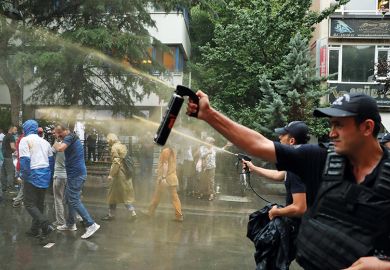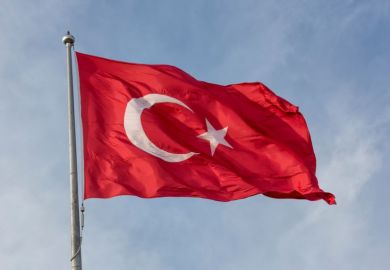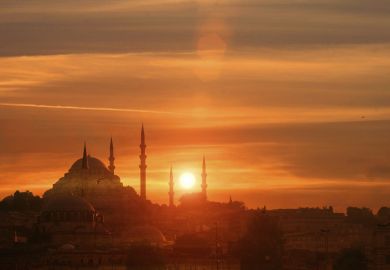Turkey’s higher education system is close to a point where “bad science” is driving out “good science” owing to the “atmosphere of fear” that has descended on the country’s universities in the wake of a crackdown on academics.
That is the view of one scholar, who believes that events in the past few years have tipped research incentives against “creative” and “critical” scholarship, with major implications for future research quality.
The comments come after data published as part of a report on the research landscape in G20 countries by Clarivate Analytics’ Institute for Scientific Information last week suggested that Turkey’s performance had been among the worst in the group over the past decade.
Its scholarly output per researcher and per unit of investment in R&D has fallen below the G20 average while quality indicators show a relatively high proportion of research achieves low citation impact or is not cited at all.
Meanwhile, separate figures from the Organisation for Economic Cooperation and Development (OECD) show how full-time equivalent academic staff numbers had fallen back to almost 2012 levels in 2016.
Such figures are also unlikely to reflect the dismissal and prosecution of what is estimated to be thousands of academics as part of a crackdown that followed a failed 2016 coup attempt against the government headed by Recep Tayyip Erdoğan.
Mehmet Ugur, professor of economics and institutions at the University of Greenwich, said “the legal harassment, oppression and persecution of academics in Turkey” had reached “unprecedented levels” and this “could only have adverse effects” on scholars still working in the country’s universities.
The situation had “tipped the incentive structure against creative/critical research in physical and social sciences. In contrast, research outputs have become more likely to be published the less controversial they are,” he said.
Professor Ugur added that “of course, this does not detract from the fact that many academics in Turkish universities are still committed to good standards and capable of competing with their peers elsewhere.
“However, it does mean that the return on research quality is markedly lower if the researcher is known to be ‘unfriendly’ towards the regime. Good researchers who want to keep a distance with the regime are less likely to be promoted compared to ideologically driven apologists, who tend to produce low-quality research.”
He added that despite there being incentives to encourage research in indexed journals and international collaboration, in his view it would lead to quantity taking precedence over quality as “substandard” research would gain more traction.
“Maybe Turkey is not there yet, but it is fairly close to a suboptimal point where adverse selection makes ‘bad science’ drive out ‘good science’,” he said.
Register to continue
Why register?
- Registration is free and only takes a moment
- Once registered, you can read 3 articles a month
- Sign up for our newsletter
Subscribe
Or subscribe for unlimited access to:
- Unlimited access to news, views, insights & reviews
- Digital editions
- Digital access to THE’s university and college rankings analysis
Already registered or a current subscriber?








